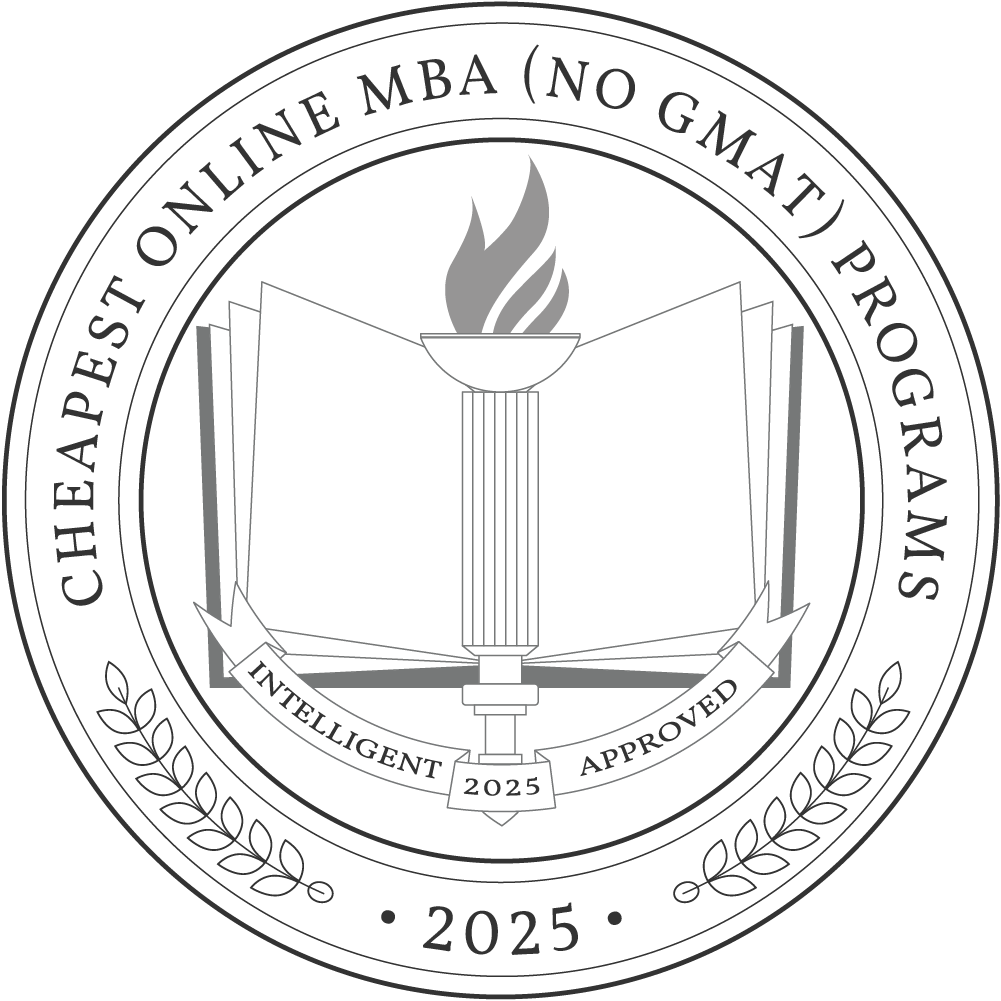The cheapest online MBA programs without a GMAT requirement are uniquely designed for students who want to pursue a high-quality education at an affordable price — without the added stress of standardized testing. These programs evaluate candidates through other application components, such as work experience, academic performance, and personal statements.
Despite lacking GMAT requirements, these programs maintain a rigorous curriculum that equips students with the skills to excel in leadership roles. Graduates can pursue lucrative careers, such as financial managers, with a median salary of $156,100, or public relations managers, earning a median salary of $130,480.
Why Trust Us
The Intelligent.com Higher Education Team is dedicated to providing students with independent, equitable school and program rankings and well-researched resources. Our expert-driven articles cover topics related to online colleges and programs, paying for school, and career outlooks. We use data from the U.S. Department of Education’s College Scorecard, the National Center for Education Statistics, and other reputable educational and professional organizations. Our academic advisory team reviews content and verifies accuracy throughout the year for the most current information. Partnerships do not influence rankings or editorial decisions.
- Analyzed over 2,000 national, accredited, and nonprofit colleges and universities
- 800+ rankings pages are reviewed and updated yearly
- Content is informed by reputable sources, surveys, and interviews with academic advisors and other experts
- Over 100 data points are reviewed for accuracy and quality throughout the year, including sources
How we rank schools
Our list features the best online MBA (No GMAT) degree programs at top colleges nationwide. Each school featured is a nonprofit, accredited institution — either public or private — with a high standard of academic quality for post-secondary institutions.
We evaluated each school’s program on tuition costs, admission, retention and graduation rates, faculty, reputation, and the student resources provided for online students. We collected data from trusted sources like the National Center for Education Statistics, individual school and program websites, school admissions counselors, and other data sources. Then, we calculated the Intelligent Score on a scale of 0 to 100 based on the following criterion:
Academic Quality:
- Admission rate versus enrollment rate
- Retention rate of students who return after year one
- Accreditation status (regional and programmatic)
- Nonprofit status, both private and public institutions
Graduation Rate
- Overall graduation rate
- Total number of currently enrolled students, including diversity metrics
- Student-to-faculty ratio
Cost and ROI
- In-state and out-of-state per-credit tuition rates and fees
- Required credits to graduate
- Earning potential after graduation
- Availability of federal student loans, scholarships, and other financial aid options
Student Resources
- Available student services for online-only and hybrid programs
- On-campus amenities like tutoring centers and the number of libraries
Read more about our ranking methodology.
The 43 Most Affordable Online MBA (No GMAT) Programs
FiltersInstitution Type
Status
- Intelligent Score
- Alphabetically By University Name
- Acceptance Rate
- Enrollment
- In-state Graduate Tuition
- Out-of-state Graduate Tuition
- In-state Undergraduate Tuition
- Out-of-state Undergraduate Tuition

University of North Carolina at Chapel Hill
Intelligent Score: 99.46In-state: $7,019
Out-of-state: $34,198
In-state: $10,552
Out-of-state: $10,552
SAT: 1280-1490
ACT: 28-33
$2,026
Online
Association to Advance Collegiate Schools of Business
62

University of Florida
Intelligent Score: 99.11In-state: $4,477
Out-of-state: $25,694
In-state: $10,770
Out-of-state: $10,770
SAT: 1290-1460
ACT: 29-33
$1,208 - $1,500
Online, On-Campus
Association to Advance Collegiate Schools of Business
32-48
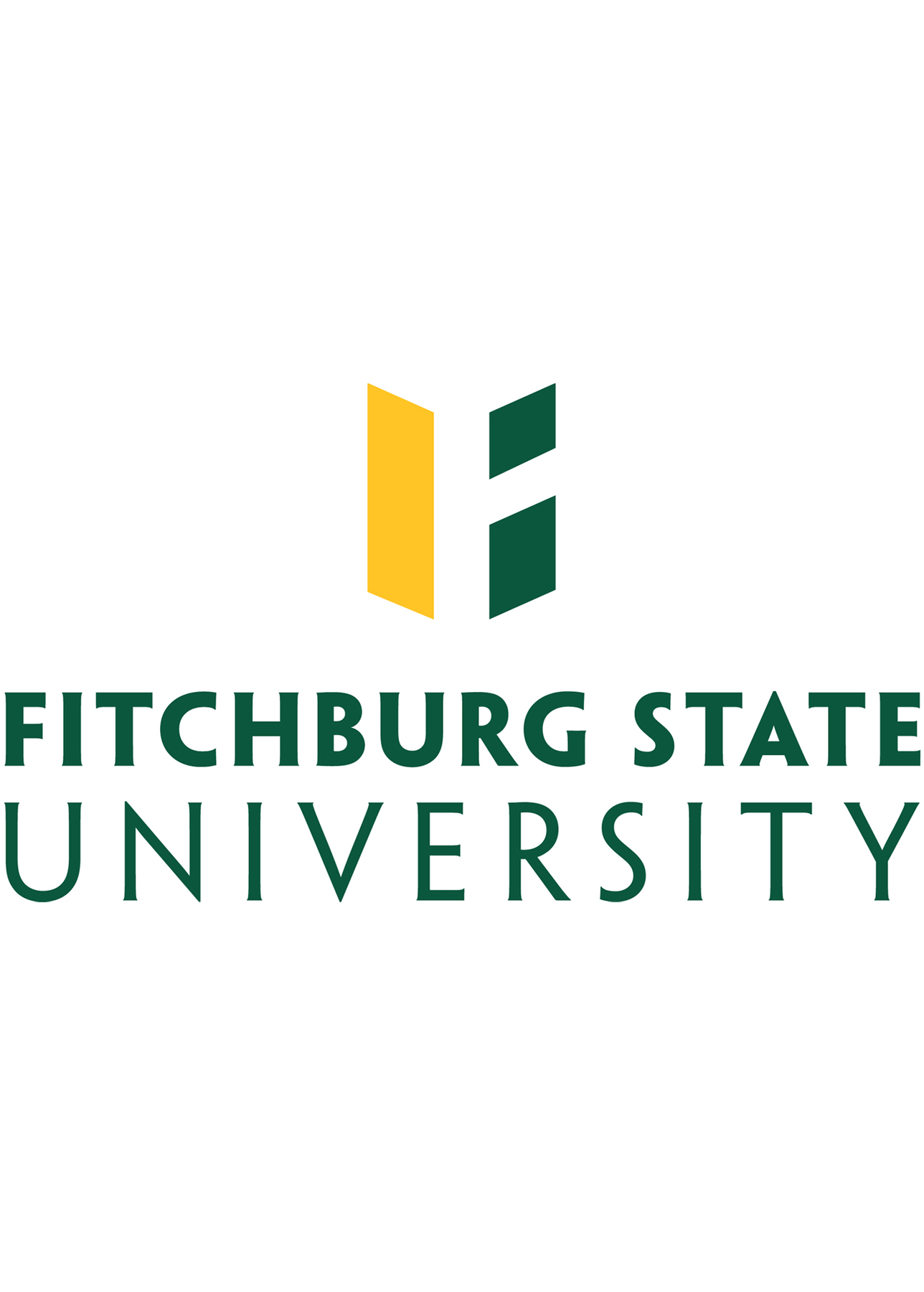
Fitchburg State University
Intelligent Score: 98.75In-state: $970
Out-of-state: $7,050
In-state: $3,420
Out-of-state: $3,420
SAT: N/A
ACT: N/A
$436
Online
International Accreditation Council for Business Education
30
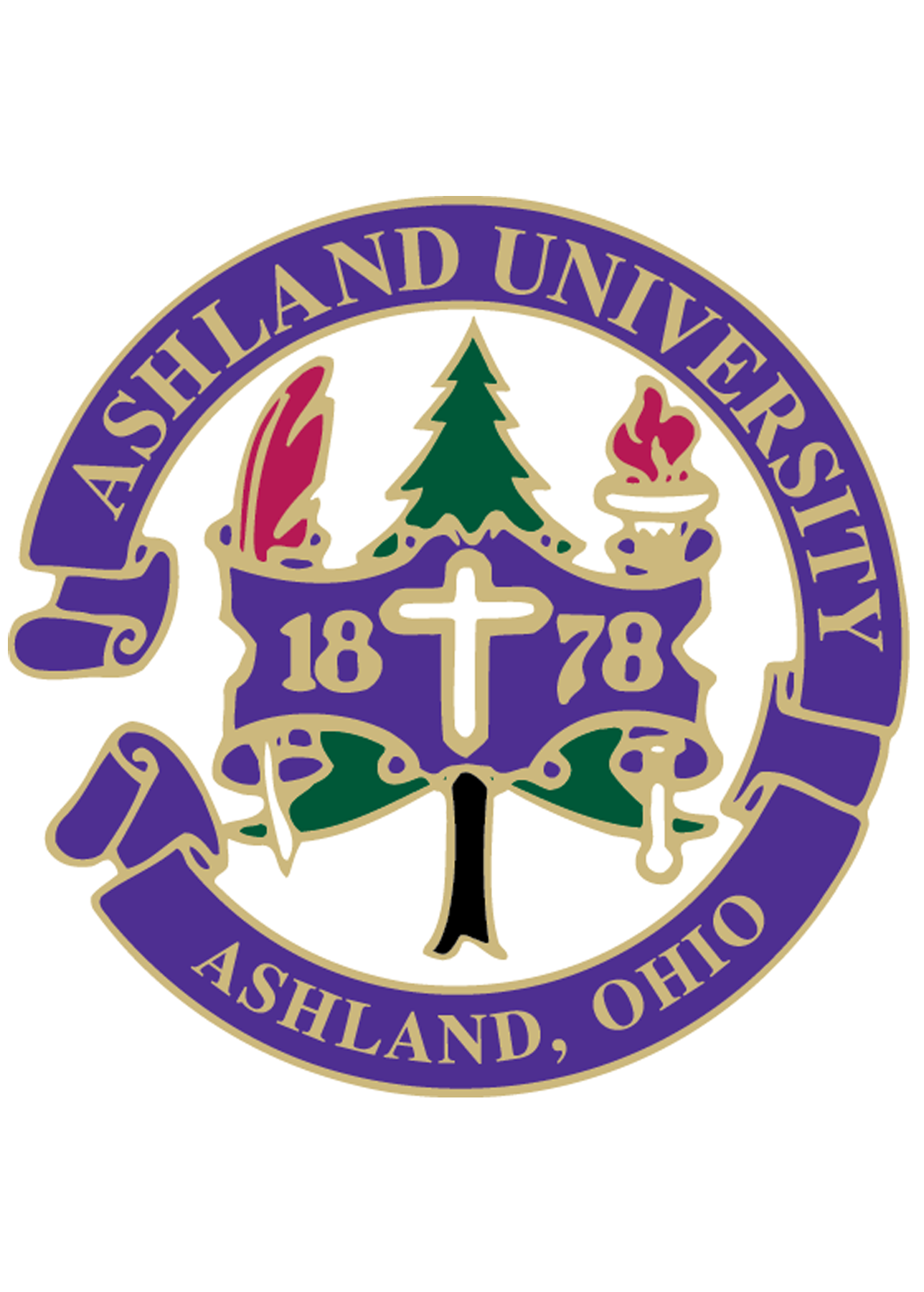
Ashland University
Intelligent Score: 98.33In-state: $22,000
Out-of-state: $22,000
In-state: $6,444
Out-of-state: $6,444
SAT: 1000-1208
ACT: 19-24
$1,010
Online, On-Campus
Accreditation Council for Business Schools and Programs
30
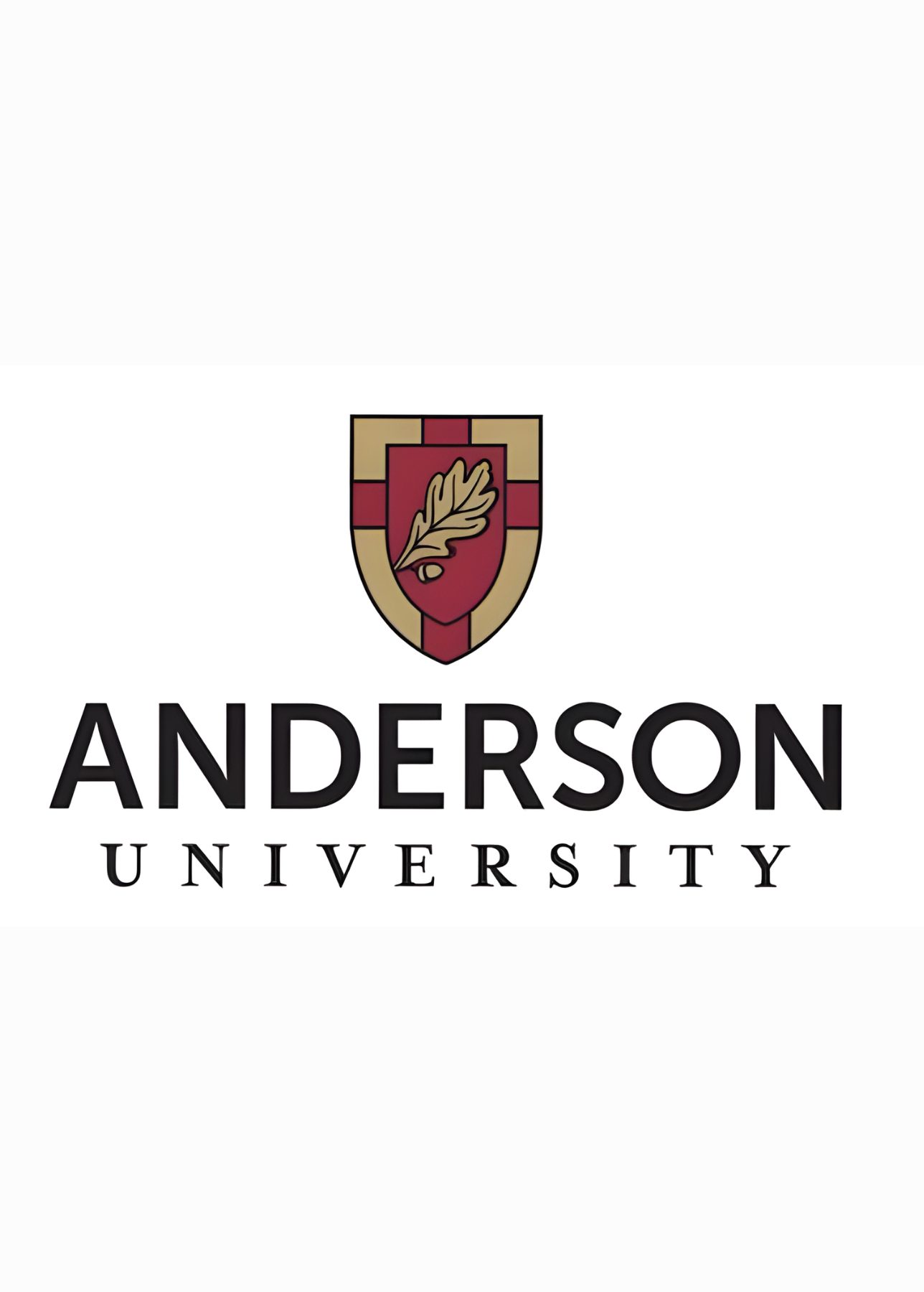
Anderson University
Intelligent Score: 98.07In-state: $26,820
Out-of-state: $26,820
In-state: $10,140
Out-of-state: $10,140
SAT: N/A
ACT: N/A
$580
Online, Hybrid
Accreditation Council for Business Schools and Programs
45

Colorado State University
Intelligent Score: 97.53In-state: $9,426
Out-of-state: $28,147
In-state: $10,520
Out-of-state: $10,520
SAT: 1070-1280
ACT: 23-29
$998
Online
Association to Advance Collegiate Schools of Business
42

Southeastern Oklahoma State University
Intelligent Score: 93.27In-state: $6,240
Out-of-state: $14,880
In-state: $4,716
Out-of-state: $4,716
SAT: 880-1090
ACT: 17-23
$345
Online
Association to Advance Collegiate Schools of Business
36

West Texas A&M University
Intelligent Score: 93.01In-state: $5,748
Out-of-state: $7,195
In-state: $4,968
Out-of-state: $4,968
SAT: 920-1130
ACT: 18-23
$500
Online
Association to Advance Collegiate Schools of Business
31

William & Mary
Intelligent Score: 92.76In-state: $17,168
Out-of-state: $40,089
In-state: $10,516
Out-of-state: $10,516
SAT: 1300-1490
ACT: 30-34
$1,425
Online
Association to Advance Collegiate Schools of Business
49

Florida Atlantic University
Intelligent Score: 89.89In-state: $2,522
Out-of-state: $14,374
In-state: $5,467
Out-of-state: $5,467
SAT: 1060-1220
ACT: 21-26
$800
Online
Association to Advance Collegiate Schools of Business
40-46
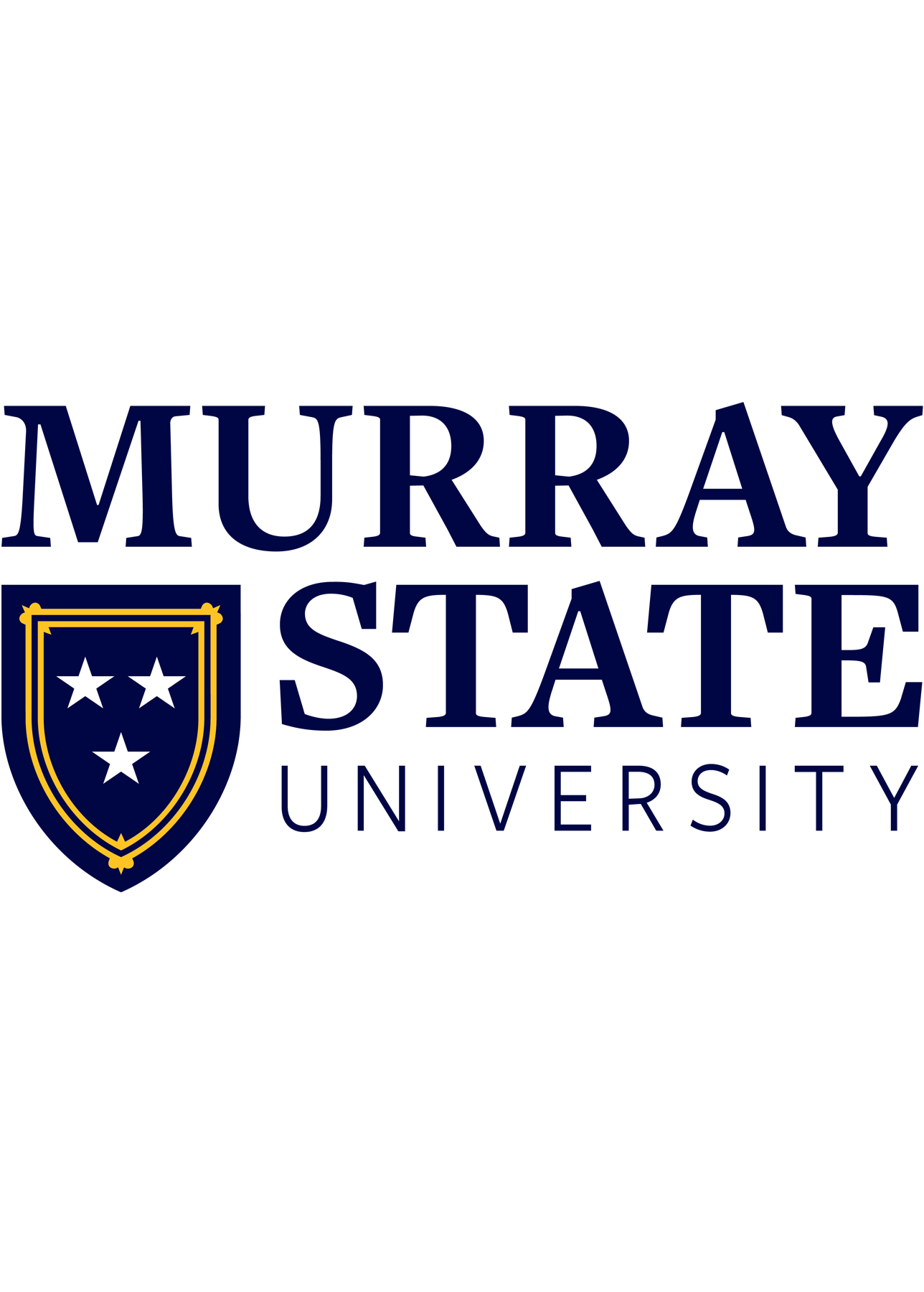
Murray State University
Intelligent Score: 89.51In-state: $7,968
Out-of-state: $17,148
In-state: $7,981
Out-of-state: $7,981
SAT: 1020-1230
ACT: 21-27
$565
Online
Association to Advance Collegiate Schools of Business
30
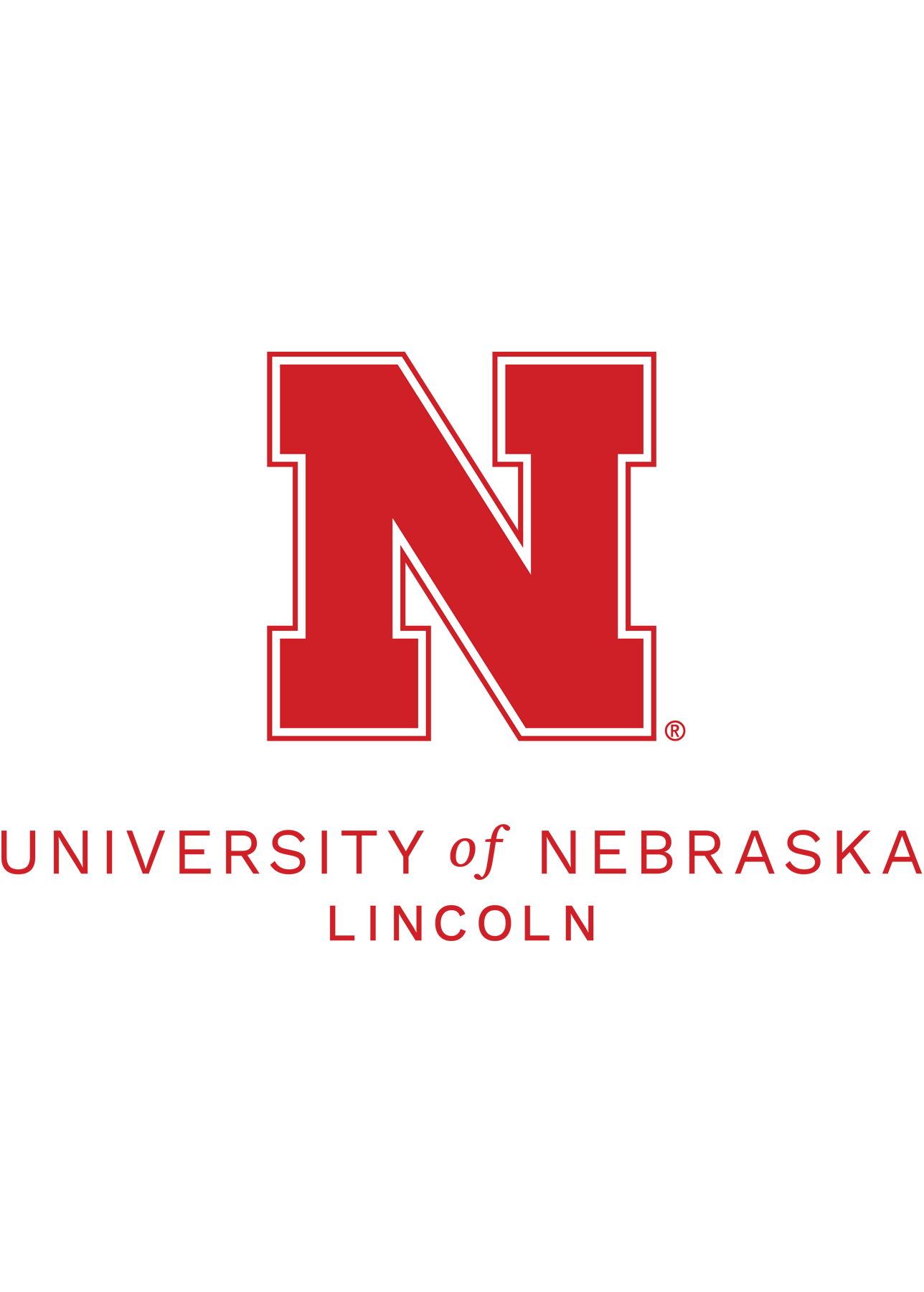
University of Nebraska - Lincoln
Intelligent Score: 89.17In-state: $7,770
Out-of-state: $24,900
In-state: $6,138
Out-of-state: $6,138
SAT: 1110-1320
ACT: 22-28
$700
Online
Association to Advance Collegiate Schools of Business
48
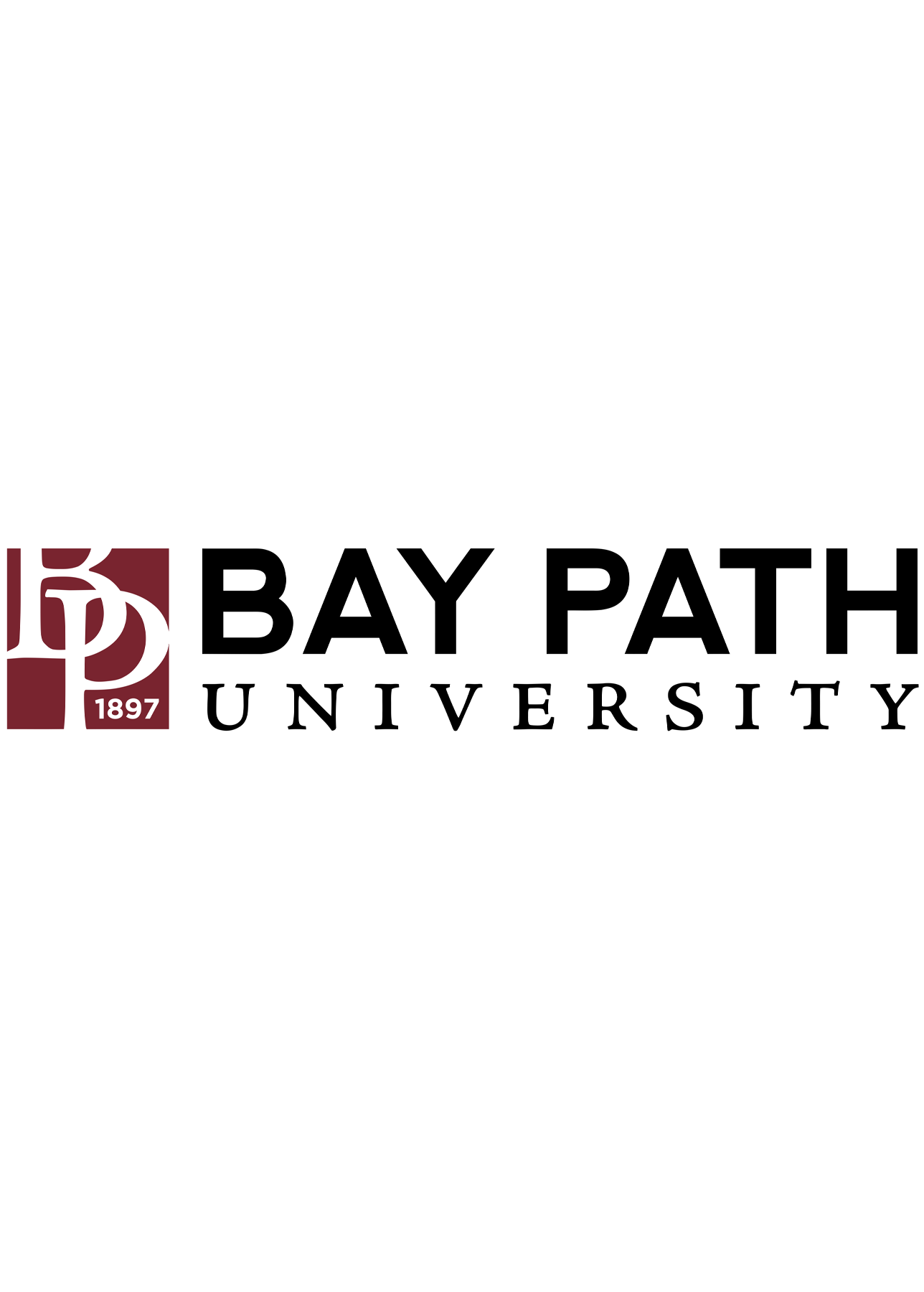
Bay Path University
Intelligent Score: 88.04In-state: $35,781
Out-of-state: $35,781
In-state: $19,235
Out-of-state: $19,235
SAT: 940-1170
ACT: 23-31
$855
Online, On-Campus
New England Commission of Higher Education
30
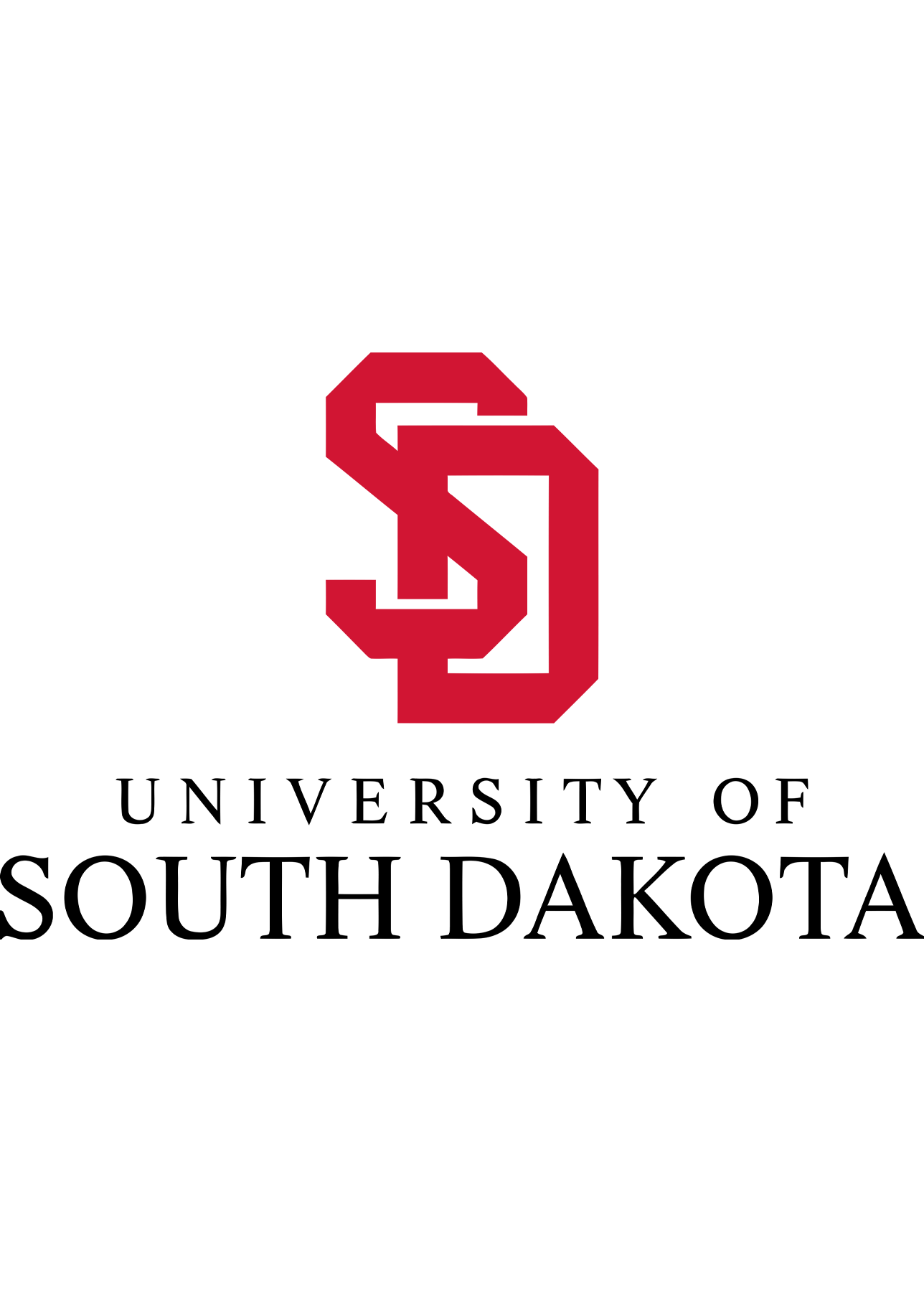
University of South Dakota
Intelligent Score: 86.65In-state: $7,697
Out-of-state: $11,172
In-state: $6,062
Out-of-state: $6,062
SAT: 1000-1245
ACT: 20-25
$470
Online
Association to Advance Collegiate Schools of Business
33

West Liberty University
Intelligent Score: 84.24In-state: $8,150
Out-of-state: $16,090
In-state: $6,780
Out-of-state: $6,780
SAT: 900-1120
ACT: 17-23
US: $510International: $625
Online
International Accreditation Council for Business Education
30

Maryville University
Intelligent Score: 84.24In-state: $24,766
Out-of-state: $24,766
In-state: $14,346
Out-of-state: $14,346
SAT: N/A
ACT: N/A
$774
Online
Accreditation Council for Business Schools and Programs
36-39
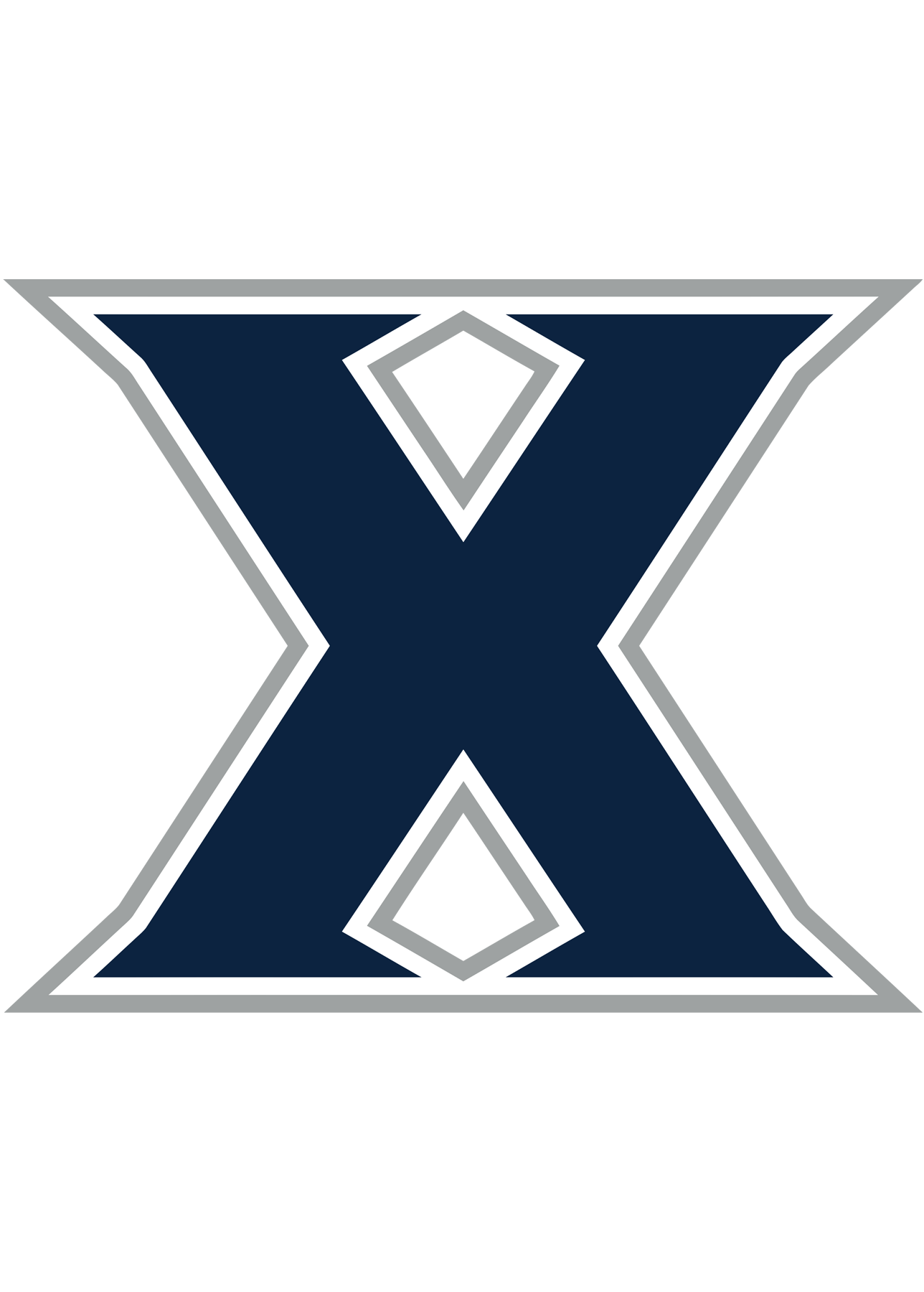
Xavier University
Intelligent Score: 83.18In-state: $42,230
Out-of-state: $42,230
In-state: $12,060
Out-of-state: $12,060
SAT: 1060-1250
ACT: 22-28
$919
Online
Association to Advance Collegiate Schools of Business
39-45

Liberty University
Intelligent Score: 82.79In-state: $14,791
Out-of-state: $14,791
In-state: $7,935
Out-of-state: $7,935
SAT: 1040-1250
ACT: 21-29
$565
Online
Accreditation Council for Business Schools and Programs
36-45
Cost Breakdown for an Online MBA Program
- Tuition: MBA tuition is typically charged per credit, ranging from $500 to $1,500. Complete programs usually require 30 to 60 credits, meaning tuition alone is often the most considerable expense. Some programs offer a per-term tuition rate, which can help make costs more predictable.
- Fees: As an online student, you may incur additional costs for tech support, academic resources, virtual libraries, and online platforms, ranging from $100 to $300 per term. Some institutions may also charge one-time enrollment or graduation fees.
- Personal technology: You’ll need reliable personal technology, including a computer, essential software, and a stable WiFi connection. A new computer can cost $500 to $1,500, while necessary software may cost $100 to $500.
- Textbooks and course materials: You’ll still need textbooks, which can often be physical or digital and cost upwards of $500 annually. Some programs may provide access to e-books or other online resources, which are included in fees.
While these costs can add up over time, it’s essential to recognize where you’ll save as an online student. Most often, you’ll see less costs for commuting, housing, and even relocating, making online learning more affordable overall.
Factors Influencing the Cost of an Online MBA Program
- Public vs. private institution: Public universities often offer lower tuition rates than private institutions. In-state students at public schools may benefit from reduced rates, while private universities tend to have a higher overall tuition but may offer more scholarships and grants to reduce these costs.
- Nonprofit vs. for-profit: Nonprofit institutions typically focus on providing education rather than profit, leading to lower tuition rates and better financial aid options. For-profit schools may have higher tuition, as they’re generally considered businesses oriented toward profit-making.
- Student residency status: In-state students at public universities usually receive lower tuition than out-of-state or international students. Many online MBA programs offer residency-based discounts, even for distance learners.
- Student military status: Active-duty military members, veterans, and their families often receive tuition discounts. Many institutions also participate in programs like the GI Bill, which can considerably lower or cover tuition costs for eligible students.
Overall, costs can range considerably, with military benefits and public/nonprofit institutions generally offering the most affordability.
How to Pay for an Online MBA
For students who prioritize affordability, there are several ways to pay for an online MBA, including scholarships, grants, work-study opportunities, and employer tuition assistance.
To learn more about accessing federal financial aid, check out the Ultimate FAFSA Guide, where you can find detailed instructions on submitting the FAFSA and answers to your most critical questions.
Out-of-pocket
Many online MBA programs offer flexible payment plans to help you pay out-of-pocket. These plans allow students to break down their tuition into smaller, more manageable installments over the semester or academic year rather than paying the total cost upfront.
Federal student loans
Federal student loans are a relatively popular option for financing a degree. They offer lower interest rates and more flexible repayment plans than private loans. Sometimes, borrowers can benefit from income-driven repayment options, deferments, and forgiveness programs.
While federal loans are often preferable to private loans due to these advantages, it’s crucial to only borrow what you need. Accumulating too much debt can create a financial burden after graduation, so borrowing sparingly and budgeting carefully can help minimize long-term repayment.
Private education loans
Private education loans are technically an option for funding your degree, but they should be considered a last resort. These loans typically come with higher interest rates, less flexible repayment options, and fewer protections than federal loans. Private loans often require a strong credit history or a cosigner and lack benefits like income-driven repayment or forgiveness programs.
Because of these downsides, relying on private loans can lead to a significant financial burden post-graduation, making them a riskier option than federal loans.
Scholarships
Scholarships are ideal for paying for your degree as they don’t require repayment, making them a preferable option over any type of loan. These awards can come from your university, private organizations, or industry-specific groups and are often based on merit, financial need, or meeting specific demographics.
Applying for scholarships early and often can help you minimize or even eliminate your need for loans, making your degree much more affordable.
Grants
Grants can be a helpful way to help pay for your MBA, as they also don’t need to be repaid. While federal grants are typically reserved for undergraduate students, you may still find grant opportunities through foundations, nonprofits, or industry organizations. These grants are often awarded based on merit, financial need, or specific areas of study.
Work-study
While traditional work-study is often campus-based, some programs offer remote or flexible options for online students – like research assistantships or virtual internships. These roles provide income to help cover tuition or personal expenses while providing resume-boosting work experience that can improve career prospects after graduation.
Employer tuition assistance
Currently employed students may utilize their employer’s tuition assistance programs to cover some or all of their educational expenses. Typically, these programs require students to stay with the company for a period after graduation and maintain a specific GPA.
They’re an excellent way to offset costs while advancing career goals. Still, it’s essential to understand the terms, such as repayment obligations, if you leave the company before fulfilling the agreement.
Scholarship Database
Intelligent Scholarship Finder Tool
"A Helping Hand" Scholarship
Award Amount: $500
Due Date: January 31, 2025
"Follow Your Own Path" Essay Scholarship
Award Amount: $500
Due Date: January 31, 2025
"Tuition Solution" Scholarship for STEM Students
Award Amount: $500
Due Date: January 31, 2025
$25k "Be Bold" No-Essay Scholarship
Award Amount: $25,000
Due Date: Closed for 2024
(ISC) Graduate Cybersecurity Scholarship
Award Amount: $5,000
Due Date: Closed for 2024
(ISC) Women in Information Security Scholarship
Award Amount: $5,000
Due Date: Closed for 2024
A.C. "Kate" & Leo Joseph Merlone St. Dominic Catholic Church of Saginaw Member Scholarship
Award Amount: Varies
Due Date: Closed for 2024
A.C. "Kate" & Leo Joseph Merlone Teaching Scholarship
Award Amount: Varies
Due Date: Closed for 2024
a/e ProNet David W. Lakamp Scholarship
Award Amount: $5,000
Due Date: Closed for 2024
AAAE Native American Scholarship
Award Amount: $1,500
Due Date: March 15, 2025
How to Choose the Online MBA that’s Right for You
Clarify your needs and goals
Before selecting your online MBA program, you’ll want to clarify your needs and goals to guarantee the right fit. Here are a few things to consider:
- What delivery format works best for me – asynchronous or synchronous?
- Would part-time or full-time be better for my current commitments?
- What area of study or specialization is ideal for my career goals?
Potential MBA specializations typically include finance, marketing, and entrepreneurship. Students focused on climbing the corporate ladder might benefit from finance or marketing, while those looking to start their own business could thrive in an entrepreneurship program. Other opportunities may exist in human resources, IT, and business analytics.
Research schools and programs
You can research schools and programs once you understand your needs and goals better. You may come into this process with a few questions of your own, but here are some others to consider:
- Do recognized accrediting bodies accredit the institution and program?
- What is the program’s reputation and ranking in the industry?
- Does the program offer the specialization I’m interested in?
- What is the total cost, and are there financial aid options available?
- What is the format and flexibility of the course schedule?
Students can find this information on program websites, virtual open houses, or conversations with admissions counselors.
Review application and eligibility requirements
Before applying, you’ll want to carefully review the application and eligibility requirements to ensure you meet all criteria. Standard requirements often include:
- Bachelor’s degree from an accredited institution
- Resume or CV showing relevant work experience
- Personal statement
- Letters of recommendation
Many programs will shift their admission focus to other application elements instead of GMAT scores, such as personal statements, letters of recommendation, or previous work experience.
